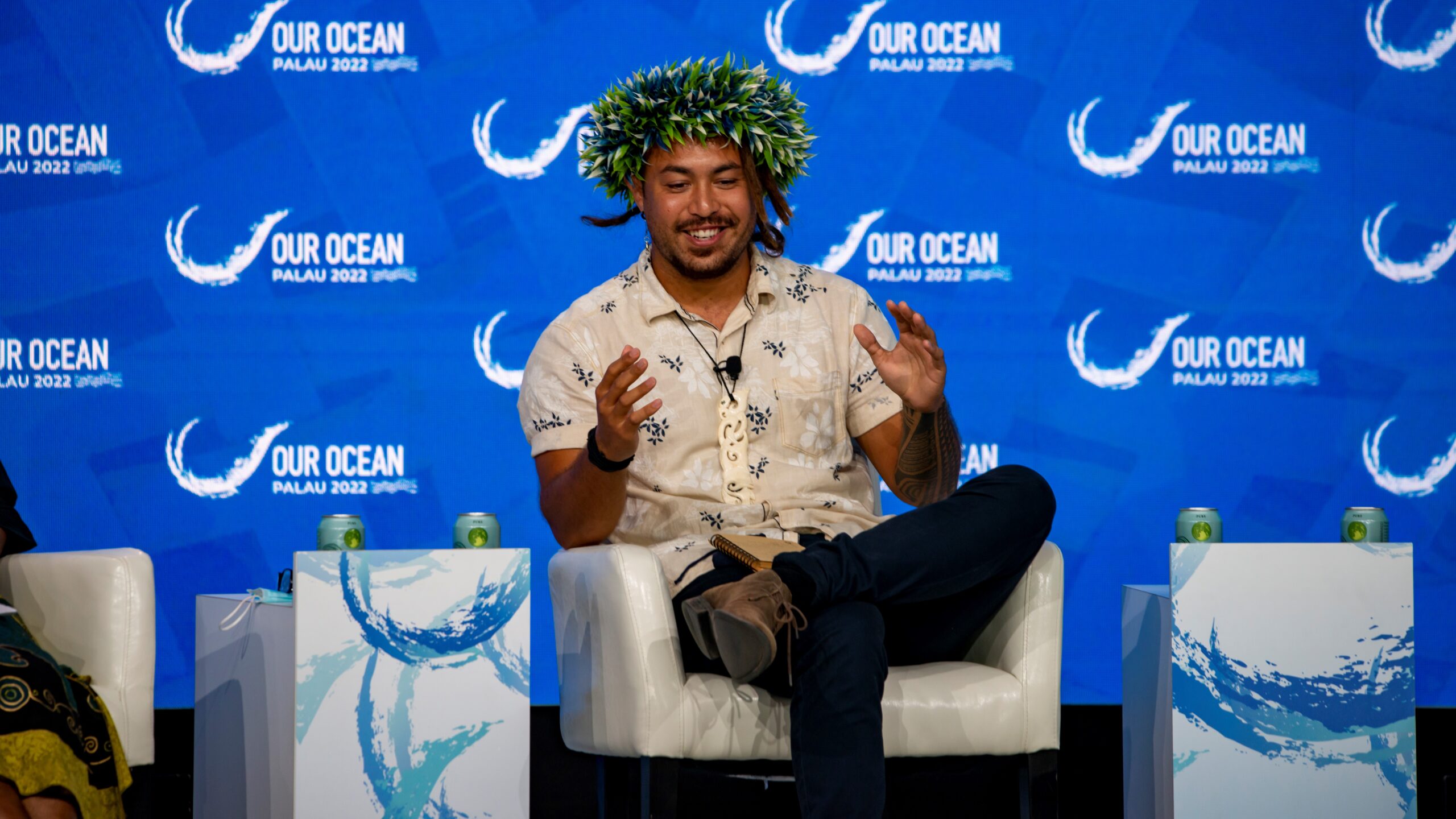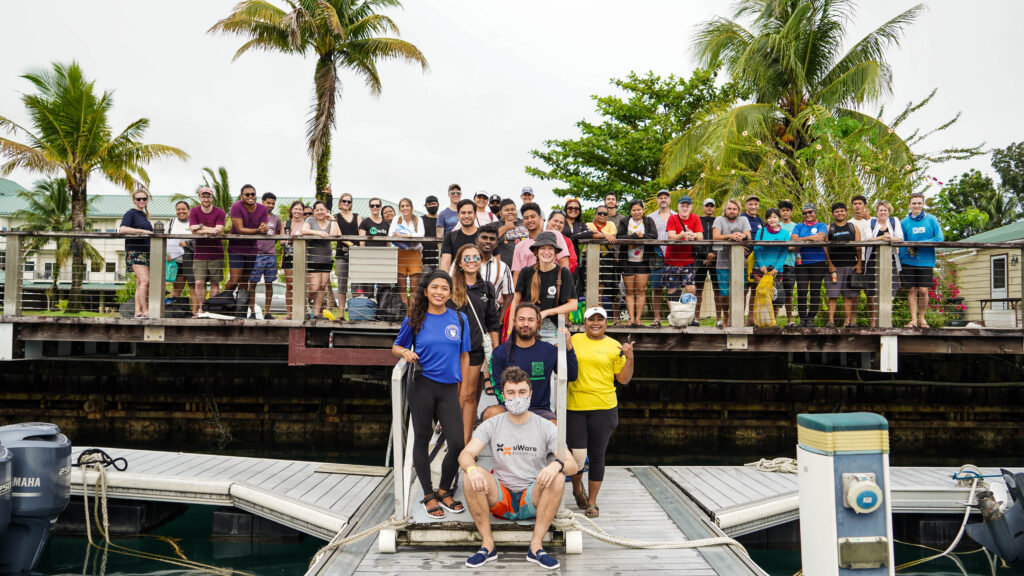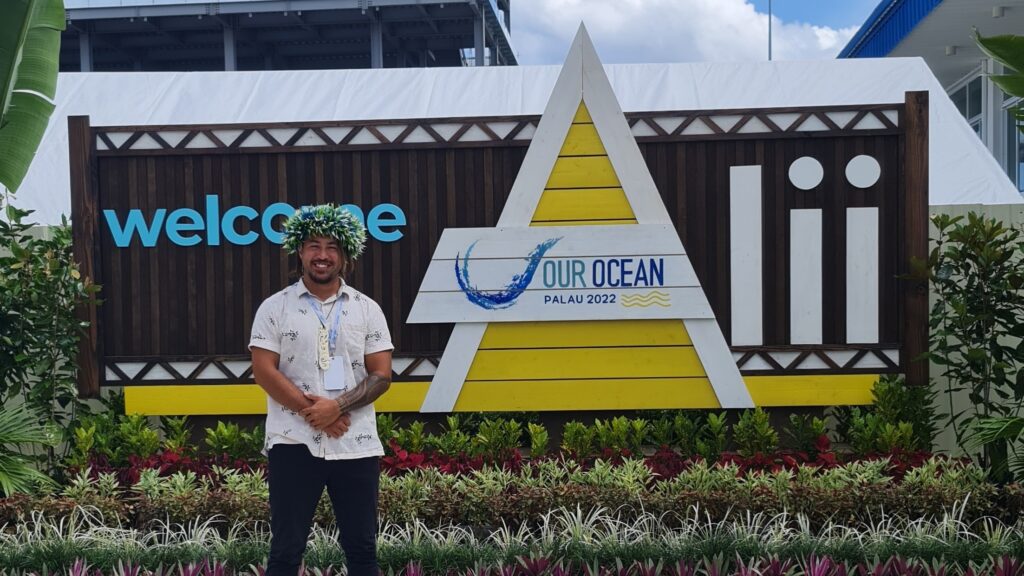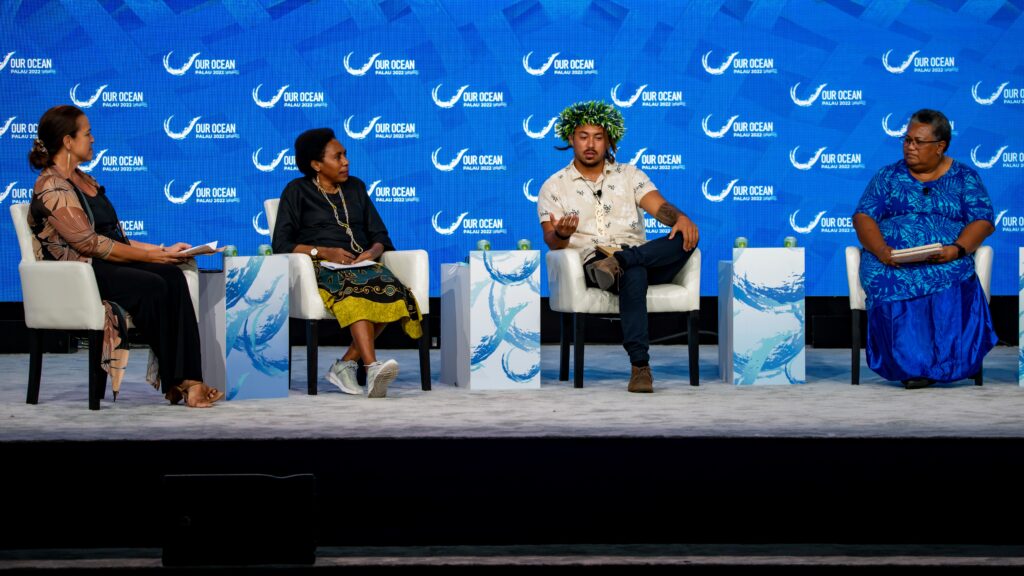From Mitiaro to Our Ocean’s event in Palau
Saturday 7 May 2022 | Written by Caleb Fotheringham | Published in Features, Weekend

Antony Vavia spoke on the need to incorporate both contemporary science and indigenous knowledge to a crowd of over 500. Photo: Supplied/22050407
From Mitiaro to Palau, marine biologist Antony Vavia shares his experience at the Our Oceans Conference last month and speaks about the relationship between contemporary science and indigenous knowledge.
Vavia says the atmosphere at the conference held on April 13 and 14 was exhilarating, filled with global leaders throughout the Pacific and the world.
“You’ve got all these people from different professions, from having a scientific background, a policy background, sustainable blue economics, marine engineering, all of these different parties coming together to network and build these relationships to hopefully create solutions,” Vavia says.
Vavia, 26, was invited to speak on the indigenous led conservation panel, where he gave a 30-second message on the importance of integrating indigenous knowledge and contemporary science - which he says was a trip highlight.
“The reality is especially in the Pacific and other indigenous communities, they are both incredibly important,” he says.
“You cannot survive in a rapidly evolving ocean climate with just one or the other, we need to find ways to incorporate both of them.”

Vavia says a fishery couldn’t exist without the people, so it was crucial to engage the community who are the main resource stakeholders - especially in the Pacific.
“That certainly involves looking at and investigating traditional knowledge but also using science to understand it so you can take it to the next level.”
He says some people viewed either traditional or contemporary scientific practices as superior to the other.
“But at the same time, I am seeing that both of them are slowly being recognised (as important), particularly in a Pacific Island nation.
“That’s how I feel just looking at the whole marine sector throughout the Pacific and that’s really exciting, it’s just trying to bring it more to the fore so that we can make some bigger actions to improve things like sustainability.”
Vavia says it’s a waste of time choosing one method over the other because the focus becomes on strategies instead of desired ocean solutions.
“Let’s try and use both forms of information to create some real positive solutions.”

An Auckland University of Technology marine biology PhD candidate, Vavia spent nearly two years in Mitiaro from 2020 to the end of 2021, spending a lot of his time working in a makeshift kitchen lab, dissecting fish and collecting samples.
His primary focus was collecting data on reef fish, but also pelagic fish species, looking specifically at how much was being caught, fish size, frequency, and how much effort is required to catch those fish.
Vavia’s experience has placed him in a unique position between contemporary science and indigenous practice.
The Republic of Palau was the first small island developing state to host the Our Ocean Conference. It was the seventh conference and had the theme of “Our Ocean, Our People, Our Prosperity” which was designed to draw on Palau’s rich tradition as an ocean society.
It concluded with 410 commitments made which were worth over $16.35 billion. The conference attracted over 600 participants representing more than 70 foreign delegations and 150 non-state actors.

One of the press releases that came out of the event says: “the role of Indigenous and youth leadership in protecting ocean health came to the forefront throughout the conference”.
President of Palau, Surangel S. Whipps, Jr. said: “Island nations are on the frontlines of the dual ocean and climate challenges. By hosting the meeting, Palau was not only able to show the world just how vulnerable we are to these crises, but also the many solutions available to tackle the problems today if we just choose to use them.”
Before attending the conference, Vavia told Cook Islands News he hoped tangible changes would come from it and said in previous conferences he had felt disappointed with what was actually achieved.
However, Vavia says after being going to the Palau meeting he found the “magic” happened behind the scenes.
“The solid networking and building partnerships happen afterwards, between talks,” he says.
“The stage is a great platform to advertise problems and solutions and what’s working in their country or whatever, but really it’s what happens behind the scenes that is really incredible.”












































